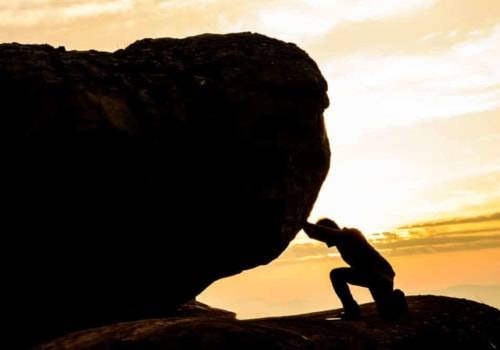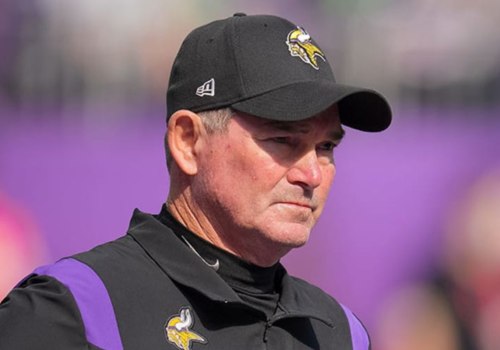While a sponsor is more focused on the program, a recoverycoach is more all-encompassing. They are there to help you, the sponsor, gothrough the 12-step program—whether it's Alcoholics Anonymous, NarcoticsAnonymous, or another 12-step program—and remain addiction-free. Through a12-step program that offers instructions for the most effective method ofrecovery, sponsors assist working people. Actively listen to the advice of yourrecovery coaches if you want to heal as happily as possible.
It takes commitment and access to a variety of recoveryresources to develop the best possible version of your recovered self. Yoursponsor and recovery coach give advice and direction for your recovery. Theholistic nature of a rehabilitation coach's advice is a notable distinction.However, a sponsor must direct you within the confines of the 12 traditions andpledges of the 12Step scholarship.
A relatively new profession in the recovery industry isrecovery coaching. Recovery coaching developed as its niche in the early 2000s,branching out from the more general profession of life counseling. Whilerecovery coaching assists people with goals relevant to recovery and sobriety,life coaching concentrates on helping people define, incorporate, and maintainbroader life goals.
Recovery coaches vary in terms of their education, training,and services offered. Some rehabilitation coaches charge clients, in contrastto sponsors. Similar to sponsors, recovery coaches frequently have tight,personal ties with their clients. For those who wish to stay sober but needdirection, sober coaching has grown in popularity recently.
Since a skilled sober coach can teach you constructive methodsto deal with uncomfortable emotions, you might think of sober training as atype of life training. Your sober coach will teach you how to deal withcravings, stay away from triggers, and try to make other life-improvingchanges. To manage cravings, some people may need sponsors or sober coaches.People who are new to recovery are shown via sober training that long-termsobriety is achievable.
Sober counseling and sponsorship function in different ways.A sponsor is the best option if you want a free sponsor and want to workthrough the steps with someone who has been in your position before. Somepeople find sober training more appealing. The main distinction betweenrecovery training and treatment or sponsorship is that recovery trainingemphasizes the future.
As a recovery coach, I assist clients in sharpening theirattention on boosting motivation, defining and formulating a strategy to meettheir objectives, and assisting them in getting rid of obstacles to recovery.Recovery coaches do not advocate for or support any particular plan ortechnique for achieving or sustaining sobriety. Tempest Sobriety School,established by Holly Whitaker, is an 8-week course that consists of weeklylectures, and live Q&A calls, and might potentially include a trainingprogram.
Keeping abreast of new developments in treatment foraddiction and recovery is a job of a sober coach. Three people can help anaddict transition from active use to sobriety: a sponsor, a recovery coach, andan addiction counselor. A recovering addict will meet with a recovery coach tosee if they are a good fit for training programs.
What are the advantages of having a recovery coach or a sponsor?
In the early stages of recovery and when you start makingplans for your reintegration back into society, a recovery coach is availableto assist you in making decisions in all spheres of your life. They makearrangements for services including resources, instruction, and support groups.Similar to a therapist, a recovery coach aids in creating a strategy forsuccess and preventing relapses while you are recovering. They help you buildcommunity support, set goals for going back to school or your job, and mendrelationships that were broken by your addiction since they are moreall-encompassing.
A sponsor shares an example of how their addiction affectedand ultimately changed their lives. As you begin the 12-step program, they areby your side, assisting you in navigating the program's atmosphere and formingdependable connections. There is a guiding body of knowledge that contains the12-step traditions within the 12-step program. A sponsor is available to guideyou through the "hows" and "whys" of this information. Theyunderline the significance of each stage and explain how to put it into practicein the sponsor's daily life.
Reid Boland, a case manager at Life skills South Florida anda former client, is aware of the value of getting such reinforcement whilereceiving therapy. Reid was quite involved in his weekly meetings, but it washis sponsor's commitment that inspired him to ask for advice. "I wasstruck by how everyone paused to listen to what he had to say. I asked him towalk me through the process since I was certain I wanted what he had. Hissponsor served as a mentor and role model starting at the start of treatment.Reid claims that he found it helpful to have the additional support of someonewho understood his experience.
What's the format of a recovery meeting?
Although each recovery meeting has its distinct flavor, theyall follow a similar general structure in which the principles and guidelinesare stated at the outset. Another member in the meeting recounts their tale ofaddiction, their strengths, their hopes, and how addiction damaged their lives.Each of these is designed to be followed to eventually fine-tune each step sothat it will work in your life.
The meetings at SMART Recovery are primarilyconversation-based. It is a four-point program with tools and methods for eachpoint, including:
- Developing and Sustaining Motivation
- Managing Urges
- Maintaining a Balanced Life - Managing Thoughts, Feelings,and Behaviors
Members of the group process problems while also learningnew coping mechanisms by using the four principles. Self-reliance and copingmechanisms for addiction and addictive behaviors are taught by SMART Recovery.Members of the group use the acquired skills to access materials like aworkbook, online training courses, and in-person meetings for recovery support.
How is the sponsor relationship incorporated into treatment by Life skillsSouth Florida?
Reid defines the sponsor relationship at Life skills as anopen one, saying, "From day one, we encourage clients to build thatconnection with a sponsor because they will rely heavily on them once they leavetreatment." Reid can speak from personal experience when she says thathaving a sponsor can assist someone to navigate life after treatment and helpthem avoid relapsing. The three layers that make up the structural level ofsupport that is intended to encourage the sponsor relationship are as follows:
- Discovery: Apatient is beginning to feel comfortable with the therapeutic relationship.
- Dedication: Aclient is needed to have a sponsor or sober support, providing a benefit formental health in forming relationships or community involvement. Many clientsfrequently continue at the Dedication level.
- Implementation:A client has more freedom in their relationship with their sponsor, such as theoption to go out to dinner following a meeting. This level is challenging tocomplete, thus not everyone will attempt it.
Life skills' recovery coaches will visit with clientsregularly, and we think it's beneficial for them to have this outside supportas they advance through treatment. The recovery coaches get the chance to goover a client's treatment development and support the clinicians as theycollaborate closely to create an acceptable plan.








Leave Reply